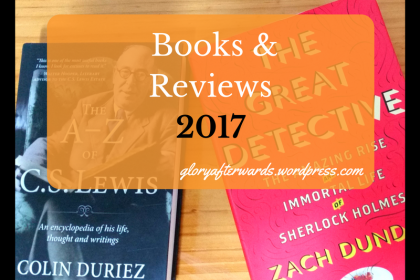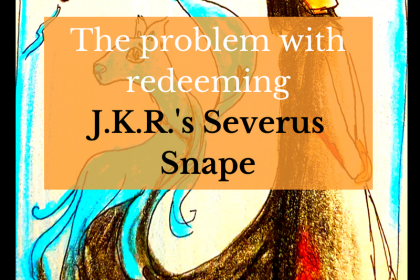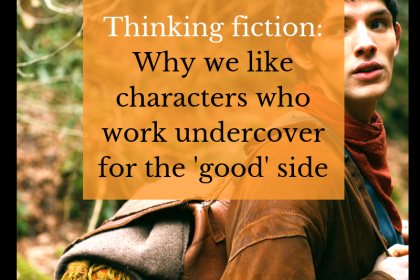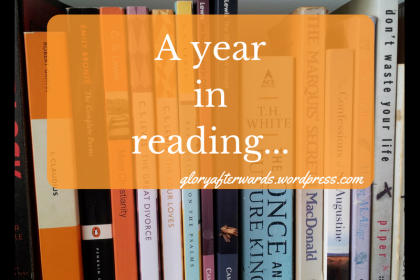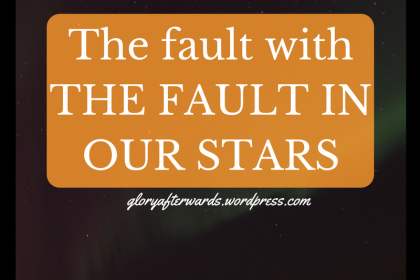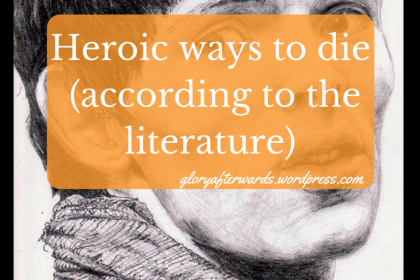This post was written in response to someone who dared to suggest in my hearing that non-fiction trumps fiction. (Don’t worry, we’re still on speaking terms!)
My defence of fiction (firstly, let’s make sure we’re on the same page)
Firstly, we cannot include the Bible in this debate. I believe that the Bible stands alone as the Word of God, a sacred text, written by the Divine. It is Truth embodied.
Secondly, we can’t say one is better than the other. To do so is to misunderstand the debate. They are both literary genres. Neither is the exclusive bulwark of Truth, although both embrace it. Non-fiction does not have the exclusive rights to ‘objectivity,’ to ‘practicality,’ or to ‘clarity’. Neither does fiction alone protect the last vestiges of ‘creativity,’ of ‘beauty,’ or of ‘refreshment’.
Fiction fulfils a different purpose to Non-fiction, but it is of equal importance, and thus deserves equal attention. This is my proposition. These, then, are my arguments:
1. Fiction will always impact its readers.
We can read a paragraph in a science textbook and go away entirely unaffected. It has changed neither our outlook nor our understanding. Non-fiction offers us easily-disregarded knowledge.
Not so with fiction. Fiction is story. Story cannot help but arouse emotion, because it is an inherent part of what it means to be human. They say we are “dust and shadows” or the “atoms of stars”, but what we really are is Story. (1) When we read fiction, the printed story cries out to the living story, and recognise each other as brothers. (2) This emotional link means we cannot help but respond – be it with hatred, with boredom, with delight, or with amusement.
Fiction always impacts its readers, and so it is a powerful, powerful tool. Propagandists throughout the centuries have understood this.
2. The act of creating fiction mirrors God.
God is Creator and when we pursue creative pursuits we reflect an inherent part of His glory. Non-fiction as well as fiction can be crafted creatively, but fiction has the advantage.
God as Creator. It is the first attribute we are introduced to in Genesis. What does God the creator do? He creates people as images of himself. When we create worlds and people them with characters, we do likewise. As we are the imago Dei, so books are images of people. (3)
There is a desire to ‘create images of ourselves’ in all our pursuits. It is the Biblical mandate after all, to “fill the earth, subdue it,” to be to the world as God is to us. (4) Why do we limit this to children? God, after all, did not limit His creation to human beings. The Genesis command is a command to create culture and community, to interact with the world, to fashion it and enjoy it.
When we create fiction, we mirror and glorify and begin to understand even more deeply God as Creator. This is extraordinarily valuable. When we enjoy fiction, we acknowledge both its inherent validity (as a fulfilment of what it means to be human, as part of a world created to be enjoyed) and its practical validity (as a passing on of knowledge and experience).(5) Fiction then, allows us to commune with both God and others.
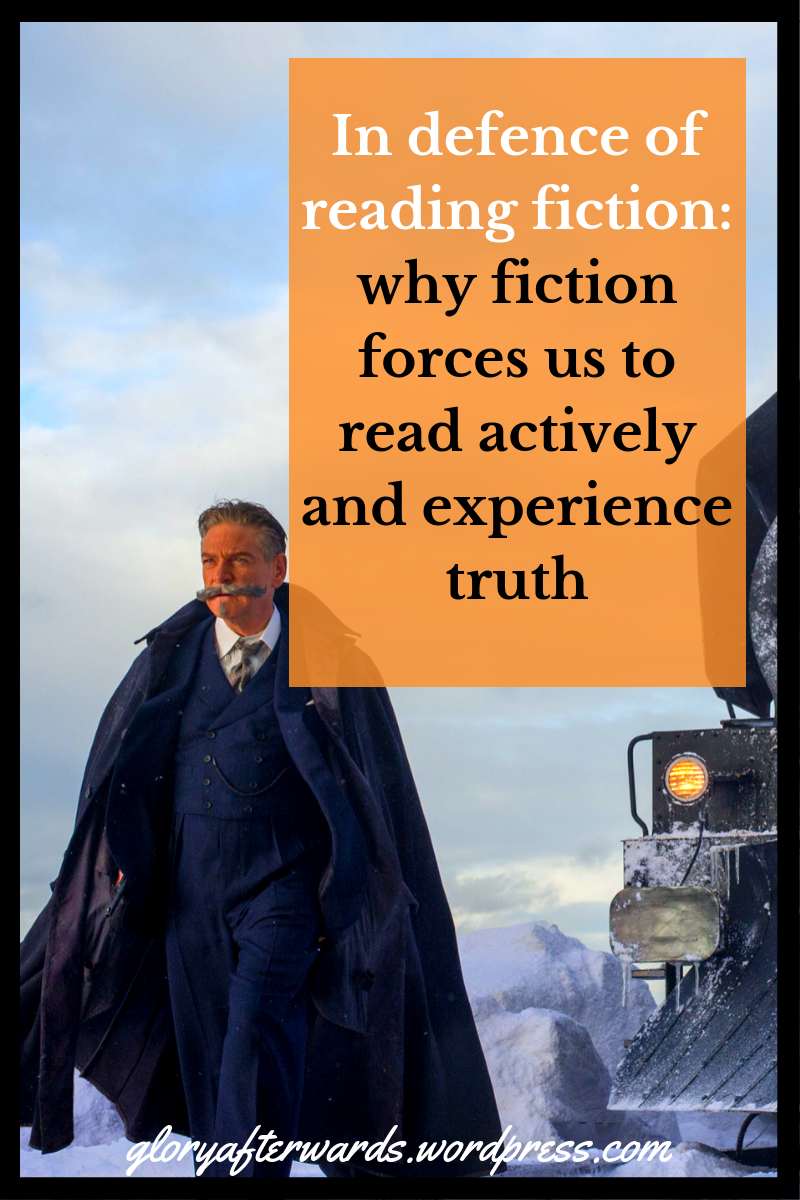
3. Fiction offers an experience, a working out of truth.
Non-fiction tells us one in two people will get cancer.(6) Fiction provides us with a lived experience of what having cancer looks like. In fiction we feel the terror and confusion of a diagnosis, the boredom of hospital waiting rooms, the guilt of comparison and cure. In fiction we go on the paradoxical journey of accepting pain in order to be healed, we reshape relationships in light of illness, we reach out and fumble for hope outside our crumbling body. It is only through fiction that we truly understand the statistic.
This is not just true for cancer, of course. Non-fiction offers truth in abstract, fiction offers truth in a breathing, loving, weeping, laughing world – and this is the world in which we live. It does not offer an answer, but it helps us get there. Thus, when we read fiction we ask: would this work in my own life? Can I solve my problems like this character? Do I want to? By working out the answer ourselves we learn more deeply and practically than we ever could through a non-fiction enunciation of morals.
In this manner it can be argued that fiction alone teaches us what it means to be human. In today’s world I think we have forgotten that “the purpose of education is the acquisition not of knowledge but of virtue as well.”(7)
Non-fiction can tell us what virtue is, but fiction is the better Teacher.
4. Fiction forces us to read actively.
Although we would all like to claim we read ‘information’ with a grain of salt, how many of us double-check our textbooks with multiple other sources? How many of us compare our newspapers with those in other countries? Unless we have a special reason to be reading critically, we tend to accept non-fiction at face value, regardless of whether we agree or disagree with it. Not only so, but we tend to search for and consume non-fiction which already agrees with our principles.(8)
We look to non-fiction, generally, for information and answers. In this regard, we are very exclusive in what we consume. If we need to learn about mechanics, we pick up Mechanics for Dummies and within its pages we find information on mechanics. So far, so obvious.
Fiction is very different. It is less focused. In Murder on the Orient Express, we find not only a ‘who-dunnit’, but philosophy, romance and a social-agenda to make us question the nature of justice. Likewise, Dickens’ A Tale of Two Cities is not merely historical fiction, but romance, Christian allegory, drama and a lot of social commentary on poverty and aristocracy. When we read fiction we will inevitably be confronted with something unexpected or something we disagree with.
For these reasons it may be tempting to renounce fiction as unreliable propaganda. Of course, we don’t say that. Instead we make comments like, “you shouldn’t read that popular fantasy series, it has witchcraft” or, “I stick to non-fiction because then I know I’m getting a ‘solid’ read with ‘helpful’ truths”. I want to propose that what we’re really saying is, “I just want to read a book I don’t have to make a critical judgement about” or “I just want to read a book which agrees with everything I already think.” Both fiction and non-fiction require discernment, but in reading fiction we are forced to actively discern.(9)
I present this as a rebuttal to those who believe fiction requires less brain-power than non-fiction. It may or it may not, but unlike non-fiction we are always required to read actively. After all,
In the real world after the fall, as in the literary worlds which represent it, good and evil are so intertwined that the responsibility of discernment cannot be realistically avoided.(10)
Fiction will not let us avoid it, therein lies its potency.
//Agree, disagree? This is hardly a comprehensive argument and I’d love to hear your thoughts!
NOTES:
(1) “Dust and shadow”: Horace, Pulvis et umbra sumus. Book IV, ode vii, line 16
“Atoms of stars”: The phrase has quite a varied history: https://quoteinvestigator.com/2013/06/22/starstuff/. It also appears in Gattacca (1997): “They say every atom in our bodies was once part of a star.”
(2) This could, perhaps, be likened to the Christian belief that God in us (Holy Spirit) communes mysteriously with God in Heaven (Jesus) because they are of the same substance.
(3) I owe this linkage of God-people-books to Milton.
(4) Genesis 1:28
(5) “The Author is dead” has become an increasingly popular viewpoint. It equips us to ignore what the author was saying and simply to deconstruct the text as we like. It is a simpler way to read and rather alluring. However, I believe it devalues individuals and overlooks the ability of books to destroy the barriers of history, geography and language to allow us to ‘hear from’ our human brothers and sisters. I thank Milton for the latter point.
(6) https://www.cancer.org.au/about-cancer/what-is-cancer/facts-and-figures.html
(7) Donald T. Williams, “Christian Poetics, Past and Present” in The Christian Imagination ed. Lelend Ryken, p.10
(8) It’s called Confirmation Bias, and it’s fascinating.
(9) Forced because a) we can’t avoid stumbling upon something we disagree with. b) fiction impacts us emotionally which always results in a moral judgement (although it is often subconscious, ie. a feeling of revulsion because we believe adultery is wrong) c) the nature of fiction means we are aware that a ‘world’ is being presented and not an isolated truth, initially triggering a more critical response.
(10) Donald T. Williams, “Christian Poetics, Past and Present” in The Christian Imagination ed. Lelend Ryken, p.13.
image courtesy of 20th Century Fox. original: https://www.rollingstone.com/movies/movie-reviews/murder-on-the-orient-express-review-whodunnit-redo-is-fast-train-to-nowhere-122383/



